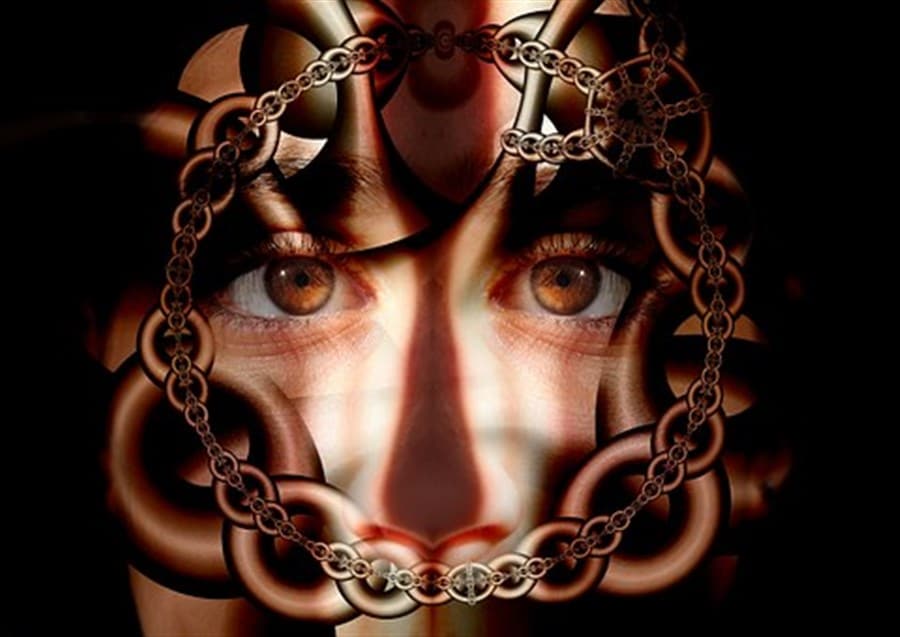Hypnotherapy for Hallucinations | The Power of Hallucinations

5 min read

Today’s main hypnosis theories state that we use our imagination to create our reality. The other theory holds that the suggestion is made in response to the thought that we are doing something harmful and therefore we can’t help but bring about that undesirable effect.
We can all agree that we don’t like hearing about how “we didn’t do anything bad, just a bad idea” and so, in the same way, that we try to make our ideas seem so bad, we try to bring about the effects of a suggestion. Can hypnotherapy for hallucinations change the way we interpret situations? This article will explore medical hypnosis to address hallucinations and delusions.
Sometimes our attempts at bringing out a negative thought will be as unsuccessful as we would like them actually to be. The goal should, therefore, be to create a positive thought that we like as a result. In an attempt to break down this idea into its more relevant components, here are some ideas that will help to break it down a bit more.
Is Hallucinating Feasible by Self-Hypnosis?
The reality is that hallucination does not rely on what we are seeing but on what we say, what we say about normal, and what is abnormal.
This is a common practice in hypnosis. It is sometimes used by hypnosis teachers. It is also used by hypnotist therapists. An example is a person who tells a therapist that he is afraid of death. A therapist asks him if there is something that would convince him that he is not afraid because of hallucinations.
To the therapist, the person saying this tells that he is afraid of death but does not give the details. This is called “hypnopomping.” You can also use the “possibility hypnosis” technique if your partner is hypnosis and is not a therapist. Hypnopomping is also used by the police to keep people from hurting each other. You tell your partner that you are going to take down a tree. You tell him that you won’t hurt anyone until your tree is down.
Is Hypnosis Safe for Schizophrenia?
Schizophrenia is a serious mental disorder that can make people understand the world and their senses differently.
Withholding information or not speaking when asked can be common, and it can lead to being misdiagnosed as having another illness rather than a serious disorder. Many people with schizophrenia are in touch with their feelings but they may be unable to express those feelings clearly or openly enough. For these reasons, we sometimes use a term such as ‘borderline personality disorder’.
Although it may never be clear what causes a personality disorder, there are some things that are sure to help. The first thing to keep in mind is the effect that it can have on the individual.
Auditory Hallucinations When Waking Up
In a university hospital, a 31-year-old woman had several times been admitted to the General Psychiatric Center. In the past seven years she has had historic re-depression; with weight loss, sleep loss, early morning awakenings, and suicidal thinking. She was effectively handled with psychotropic or ECT for depression in the past.
Now she complains that she can’t find her balance, and is not always able to talk about the symptoms. She has made a suicide attempt. She complains that there is a lot of pressure in her life. She feels she is losing herself.
She has been struggling with depression and anxiety for years. She says she used to be able to keep her head up and keep herself in the present but, “I just can’t”. All the talk about how to deal with “the child” is very important. She has spent so many years trying to deal with this. Yet the most difficult thing for her is that she can’t talk about it. It’s hard for her to do. She is not comfortable. There is no outlet to vent these feelings.
Audible Hallucinations with Birds
On the fourth psychiatric admission, she had created audible hallucinations made of birds continually scintillating in both ears. At about the same moment, her periphery of vision noticed “bugs,” which vanished when she attempted to concentrate on them with its main vision.
The first remission followed a session of hypnosis, during which she was removed for several weeks from the chirping birds, and several months later, the second session of hypnosis resulted in hours of remission.
She was referred for an inpatient treatment program, and she continued to enjoy the companionship and physical presence of her husband who would sit by her side in her room in the hospital and give her advice as she recovered. Her recovery is still ongoing, with minimal improvement in mood, but she and her husband continue to have a positive relationship.

Do Negative Hallucinations Haunt You?
Some studies have shown that highly hypnotizable imagery is more vivid, even if these results are not always replicable. Other studies have shown that elevated hypnotization has more intrusive thinking that requires a greater intervention in the psyche of the individual to create appropriate pictures.
The following episodes of mania, depression, euthymic and serious impairments in management functions, including inhibitor control, are common to bipolar disorders. The principal types of bipolar disturbances, the former have a higher prevalence of poorly maintained activity, distraction, psychomotricity, irritable mood, and self-esteem, are Bipolar I (BD I) and II (BD II).
In this research, both BD I and BD II were tested for hypnotic susceptibility. They used a universally accepted device, namely the Stanford Hypnotic Susceptibility Scale: Form C (SHSS: C), to evaluate responsiveness to hypnotic suggestions, as well as the Mood Disorder Questionnaire (MDQ), the Hypomania Checklist-32 (HCL-32) and the Plutchik-van Praag Depression Inventory (PVP).
Hypnotic Inductions with Emotional Problems
Altogether sixty-two patients were registered as healthy volunteers with BD I and 120 university students. Under the instruction of one of the researchers, individual testing was conducted, blind to the participants ‘ group data. It took forty-five minutes, beginning with a unified interpretative set and induction to the eye closure.
As earlier reported, both BD I patients and BD II patients had more severe emotional problems. However, when BD I patients were given greater passing SHSS: C rates ‘ moving hands apart ‘ and reduced ‘ mosquito hallucination, ‘ there were no variations between the types of SHSS: C complete values.
The key take away from this study is that most people are hypnotized by their subconscious mind. This is whether you are hypnotized by your body, or by yourself. There have been several studies looking into the subject of hypnotherapy for hallucinations, which show hypnotic induction to be most effective and least likely to have side effects.


